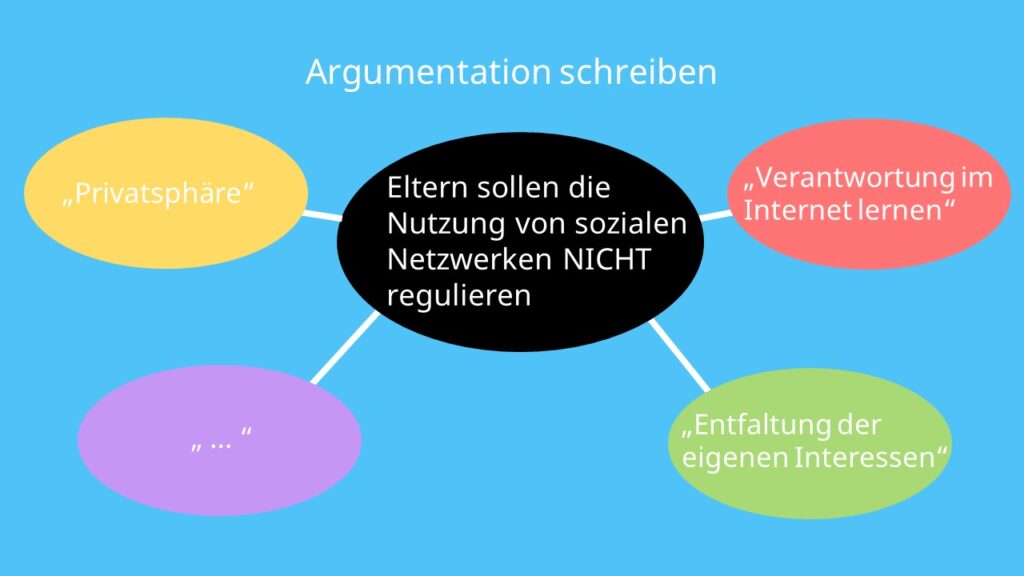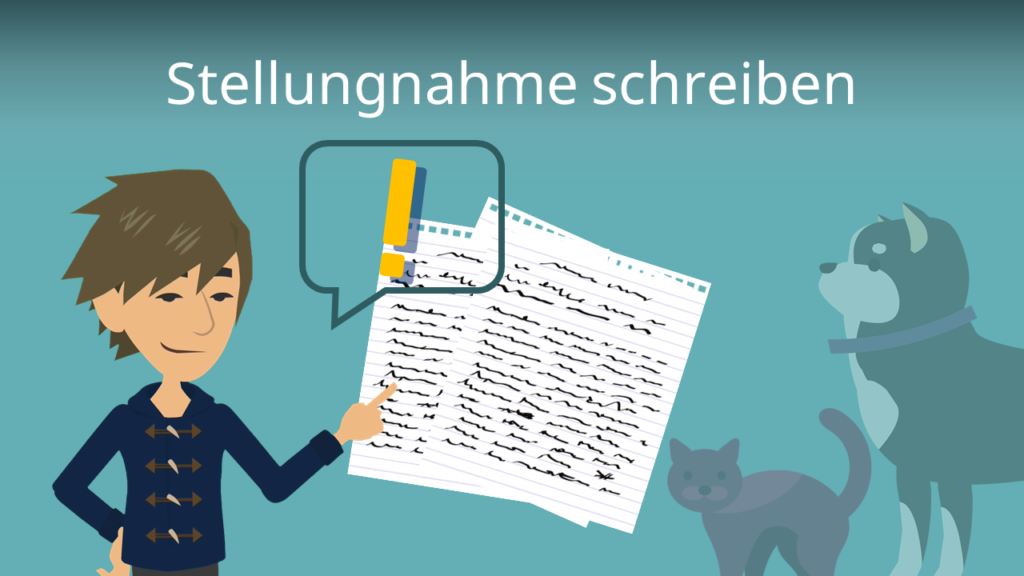
Themen zum Üben des Argumentierens

Das Argumentieren spielt bei TestDaF sowohl beim Prüfungsteil Mündlicher Ausdruck als auch beim Schriftlichen Ausdruck eine zentrale Rolle und bereitet vielen Deutschlernern große Probleme. Auch bei DSH-Prüfungen ist das Argumentieren häufig bei Textproduktionen gefragt.
Das Argumentieren wird im deutschen Hochschulsystem als eine Art Schlüsselqualifikation von Akademikern angesehen und gehört deshalb auch zu den Anforderungen, die an ausländische Studienbewerber gestellt werden.
Natürlich könnt ihr das Argumentieren am besten in einem Sprachkurs mit einem guten Lehrer und verschiedenen Diskussionspartnern üben, aber vielleicht wollt ihr zusätzlich zu Hause etwas tun, um z. B. euer Themenspektrum zu erweitern.
Ich habe mir deshalb überlegt, dass ich euch hier Argumentationsthemen vorstelle, zu denen ihr euch Pro- und Contra-Argumente überlegen könnt und habe natürlich nur solche Themen ausgewählt, die so oder so ähnlich auch in einer Hochschulzugangsprüfung vorkommen könnten.
Wenn ihr gut seid ..
Wenn ihr gut seid, könnt ihr euch hier auf dieser Seite einfach ein Thema nach dem anderen vornehmen.
Ihr solltet dabei zu jedem Thema innerhalb von zwei bis drei Minuten jeweils (mindestens) zwei Pro- bzw. Contra-Argumente finden – eine gute Übung zur Prüfungsvorbereitung.
Länger solltet ihr übrigens nicht brauchen, denn auch in der Prüfung werdet ihr unter ständigem Zeitmangel leiden. Also haltet eine Uhr bereit.
Wenn ihr bei einem Thema nicht versteht, worum es geht, lasst es einfach weg. Obwohl euch das in der Prüfung natürlich nicht passieren sollte. ;)
Wenn ihr Probleme habt ..
Falls ihr Schwierigkeiten habt, ein Thema zu verstehen oder zu einem Thema Argumente zu finden, könnt ihr auch auf die Links klicken. Diese führen zu einer Seite, wo ich erstens das Thema näher erklärt und zweitens zu jedem Thema Artikel aus dem Netz verlinkt habe, in denen zu diesem Thema argumentiert wird.
Die Argumentationsthemen
Pro und Contra: „Sind Frauen die besseren Führungskräfte?“ Pro und Contra: „Abschaffung von Bargeld“ Pro und Contra: „Wozu noch Hausaufgaben?“ Pro und Contra: „Anwesenheitspflicht an der Uni?“
Pro und Contra: „Computer im Kindergarten?“ Pro und Contra: „E-Klausuren für Prüfungen“ Pro und Contra: „Handyverbot in Lehrveranstaltungen an der Uni“ Pro und Contra: „Lieber ein Fach mit guten Karrierechancen studieren oder den eigenen Interessen folgen?“ Pro und Contra: „Fachbücher als E-Books oder auf Papier“ Pro und Contra: „Veggieday“ Pro und Contra: „Halbtags- oder Ganztagesschule“ Pro und Contra: „Wohnen für Hilfe“ Pro und Contra: „Ist Sitzenbleiben sinnvoll?“ Pro und Contra: „In Deutschland auf Englisch studieren?“
Pro und Contra: „Alkoholverbot auf öffentlichen Plätzen“ Pro und Contra: „Schulunterricht zu Hause (Homeschooling)“ Pro und Contra: „Ein MINT-Fach studieren?“ Pro und Contra: „Während des Studiums bei den Eltern wohnen“ Pro und Contra: „Fernstudium“ Pro und Contra: „Studieren ohne Männer“ Pro und Contra: „Orchideenfächer“ Pro und Contra: „23 Amtssprachen in der Europäischen Union“ Pro und Contra: „Uni unter 18“ Pro und Contra: „Schuluniformen“
Pro und Contra: „Erleichterte Zuwanderung für Fachkräfte“ Pro und Contra: „Alkoholverbot in Fußballstadien“ Pro und Contra: „Abschaffung von Vorlesungen“ Pro und Contra: „Frauenquote“ Pro und Contra: „Akademikerabgabe zu Hochschulfinanzierung?“ Pro und Contra: „Uni-Rankings“ Pro und Contra: „Studium Generale“ Pro und Contra: „Englisch-Kurse im Kindergarten“ Pro und Contra: „Geisteswissenschaften“ Pro und Contra: „Sozialarbeit gegen Studiengebühr“
In diesem Archiv findet ihr weitere typische Themen zum Argumentieren, wie sie in der TestDaF-Prüfung vorkommen:

Argumentation schreiben
Argumentation schreiben leicht gemacht! In diesem Beitrag erfährst du anhand von Beispielen, wie du Argumente richtig und überzeugend formulierst! Für einen schnellen Überblick geht’s hier direkt zum Video!
Was ist eine Argumentation?
Argumentation schreiben – vorbereitung, argument – aufbau, argumentation – aufbau, argumentation schreiben – tipps, argumentation schreiben – häufigste fragen, stellungnahme schreiben.
Wenn du eine Argumentation schreibst, willst du den Leser von deiner eigenen Meinung zu einem gegebenen Thema überzeugen. Deine Argumentation setzt sich aus mehreren, gut strukturierten Argumenten zusammen. Jedes Argument besteht dabei aus einer Behauptung, einer Begründung und einem Beispiel.
Argumentationen und Erörterungen sind ähnlich aufgebaut, unterscheiden sich aber in einem wichtigen Punkt: In einer Argumentation vertrittst du immer deine eigene Meinung . In einer Erörterung kann es sein, dass du eine Meinung vertreten musst, die nicht deine eigene ist.
Wenn du mehr über Erörterungen erfahren möchtest, dann klick dich einfach durch unsere Videos zum Thema Erörterung schreiben, dialektische Erörterung und lineare Erörterung!
Bevor du mit dem Schreiben deiner Argumentation beginnst, ist es sinnvoll, deinen Text zu planen. Dabei helfen dir folgende Schritte:
1. Das Thema verstehen : Deine Aufgabenstellung gibt dir Hinweise darauf, worum es in deinem Aufsatz gehen soll. Meistens enthält sie die Schlüsselbegriffe , die in deinem Text nicht fehlen dürfen. Achte darauf, dass du bei allen Begriffen verstehst, was sie bedeuten.
Beispiel : Verfasse eine schriftliche Argumentation darüber, warum Eltern die Nutzung von sozialen Netzwerke n nicht regulieren sollten.
2. Argumente sichten : Im nächsten Schritt sammelst du alle Gründe, die du für deine Meinung finden kannst. Sie bilden die Basis für deine Argumente .

Tipp : Ordne deine Gedanken mithilfe einer Mindmap!
3. Argumente ordnen : Kennzeichne farbig die Argumente, die thematisch zusammenpassen. Diese kannst du in deinem Text dann im selben Abschnitt behandeln.
Beispiel : Privatsphäre , Verantwortung im Internet lernen , Entfalten von eigenen Interessen , …
4. Argumentation gliedern : Zuletzt legst du fest, in welcher Reihenfolge du die Argumente in deinem Text ordnen willst.
Beispiel : Eltern sollten die Nutzung von sozialen Netzwerken nicht regulieren, weil … diese Benutzung etwas sehr Privates für ihre Kinder ist ; verantwortungsvoller Umgang mit dem Internet auch erlernt werden muss ; soziale Netzwerke dafür genutzt werden, um die eigenen Interessen zu entfalten ; und …
Das Herzstück deiner Argumentation sind deine Argumente. Argumente sind nichts anderes als Begründungen für deine Meinung, die du in eine ganz bestimmte Struktur gebracht hast. Diese Struktur besteht immer aus den gleichen drei Teilen. Achte darauf, dass alle deine Argumente aus diesen Teilen bestehen – nur so wirken sie überzeugend auf den Leser!
- These/Behauptung : Hier formulierst du den Inhalt deines Arguments als Aussage.
- Begründung : Hier erklärst du dem Leser diese Aussage. Die Begründung beginnt meistens mit Verknüpfungen wie denn oder weil .
- Beispiel : Hier veranschaulichst du deine Begründung. Je nach Aufgabenstellung ist es völlig ausreichend, wenn du deine eigene Erfahrung schilderst.
Argument Aufbau – Beispiel : Soziale Netzwerke bieten eine Plattform, in der Jugendliche ihre eigenen Interessen entfalten können . Dies ist der Fall, weil sich Jugendliche im Internet wesentlich weniger von den Erwartungen ihrer Eltern beeinflusst fühlen . Das konnte in einer Studie bewiesen werden, in der…
Argumentierst du für eine Position, dann verwendest du Pro-Argumente . Argumentierst du gegen eine Position, dann verwendest du Contra-Argumente .
Da du in einer Argumentation deine eigene Meinung vertrittst, wirst du wahrscheinlich nur Pro-Argumente verwenden.
Ganz egal, ob dir eine Argumentation im Deutsch-Unterricht begegnet oder du deine Meinung einfach so sinnvoll verschriftlichen möchtest – der Aufbau deiner Argumentation ist immer derselbe:
- Hauptteil 2.1 Argument 1: Behauptung, Begründung, Beispiel 2.2 Argument 2: Behauptung, Begründung, Beispiel 2.3 Argument 3: Behauptung, Begründung, Beispiel 2.4 …
Argumentation schreiben – Einleitung
Die Einleitung führt den Leser in dein Thema ein. Daher solltest du hier …
- das Thema deiner Argumentation nennen,
- deine Meinung deutlich machen und
- das Interesse des Lesers wecken. Hierbei kannst du zum Beispiel auf eine persönliche Erfahrung oder auf eine Statistik eingehen.
Argumentation Beispiel – Einleitung : In dieser Argumentation möchte ich darlegen, warum Eltern die Nutzung von sozialen Netzwerken nicht regulieren sollten. Ich persönlich habe Erfahrungen gemacht mit … / In einer Statistik aus dem Jahr …
Argumentation schreiben – Hauptteil
Im Hauptteil bringst du alle Argumente an, die du während der Vorbereitungsphase gesammelt hast. Achte unbedingt darauf, dass du …
- alle Argumente zu einem Thema in denselben Abschnitt schreibst,
- mindestens zwei starke Argumente nennst, und
- zwischen den einzelnen Argumenten Überleitungen wie darüber hinaus , außerdem , oder schließlich verwendest.
Tipp: Starke Argumente sind überzeugender als schwache Argumente. Du nennst die starken Argumente als Letztes, weil sie dem Leser am Besten im Gedächtnis bleiben.
Beispiel schwaches Argument : Eltern sollten die Nutzung von sozialen Netzwerken nicht regulieren, weil sie soziale Netzwerke nicht verstehen. Beispiel starkes Argument : Eltern sollten die Nutzung von sozialen Netzwerken nicht regulieren, weil Jugendliche lernen müssen, verantwortungsvoll mit dem Internet umzugehen.
Wenn deine Argumentation etwas länger werden darf, kannst du den Hauptteil mit einem Gegenargument beginnen. Dieses Gegenargument wird dann mithilfe deiner Argumente entkräftet . So wirkt dein Text noch durchdachter.
Argumentation Beispiel – Hauptteil : Es wird manchmal behauptet, dass Eltern die Nutzung von sozialen Netzwerken regulieren sollten , weil … Diese Aussage trifft nicht zu , denn …
Argumentation schreiben – Schluss
Im Schlussteil ziehst du ein Fazit zu deiner Argumentation. In diesem Fazit solltest du …
- noch einmal deine Meinung nennen, und
- die wichtigsten Argumente kurz zusammenfassen .
Wichtig : An dieser Stelle führst du keine neuen Argumente mehr ein!
Argumentation Beispiel – Schluss : In diesem Text wurde dafür argumentiert, dass Eltern die Nutzung von sozialen Netzwerken nicht regulieren sollten. Anhand von [Argument 1] konnte bewiesen werden … Außerdem wurde durch [Argument 2] aufgezeigt, dass … Schließlich wurde der Punkt durch [Argument 3] bekräftigt, da …
- Achte darauf, dass alle deine Argumente aus einer Behauptung, einer Begründung und einem Schluss bestehen.
- Absätze und Überleitungen machen deine Argumentation übersichtlicher.
- Argumente über aktuelle Themen werden in der Gegenwart (Präsens) verfasst. Wenn du über Vergangenes schreibst, benutzt du dagegen die 1. Vergangenheit (Präteritum).
- Vergiss das Korrekturlesen nicht.
- Was ist eine Argumentation? Eine Argumentation dient dazu, die Leser von deiner eigenen Meinung zu überzeugen. Zu diesem Zweck bringst du Argumente an, die du dir überlegt hast. Daher kannst du eine Argumentation als eine zielgerichtete, durchdachte Zusammenstellung von mehreren Argumenten beschreiben.
- Wie ist der Aufbau einer Argumentation? Deine Argumentation unterteilst du in drei Teile: Zuerst führst du mit einer kurzen Einleitung zum Thema hin. Danach folgt dein Hauptteil, in dem du deine Argumente darlegst. Dein Schluss rundet die Argumentation schließlich ab.
- Wie schreibt man die Einleitung einer Argumentation? Gehe in der Einleitung deiner Argumentation auf die Aktualität und die Bedeutung des Themas ein. Mit der Einleitung willst du nämlich die Aufmerksamkeit des Lesers wecken. Mache zudem in deiner Einleitung gleich deutlich, welcher Meinung du zu dem Thema vertrittst.
Du möchtest mehr über argumentative Texte lernen? Dann schau dir auch unser Video zur Stellungnahme an!

Beliebte Inhalte aus dem Bereich Textarten Deutsch
- Kommentar schreiben Dauer: 04:16
- Stellung nehmen Dauer: 03:38
- Argumentationsstruktur Dauer: 04:56
Weitere Inhalte: Textarten Deutsch
Hallo, leider nutzt du einen AdBlocker.
Auf Studyflix bieten wir dir kostenlos hochwertige Bildung an. Dies können wir nur durch die Unterstützung unserer Werbepartner tun.
Schalte bitte deinen Adblocker für Studyflix aus oder füge uns zu deinen Ausnahmen hinzu. Das tut dir nicht weh und hilft uns weiter.
Danke! Dein Studyflix-Team
Wenn du nicht weißt, wie du deinen Adblocker deaktivierst oder Studyflix zu den Ausnahmen hinzufügst, findest du hier eine kurze Anleitung . Bitte lade anschließend die Seite neu .

Mathe matik
kapiert.de kann mehr!
- Übung starten
- Trainer starten
- Lernmanager öffnen
- Eine Argumentation schreiben
Planung führt zum Erfolg
Mit einer Argumentation möchtest du jemanden von deiner Meinung überzeugen oder mindestens zum Nachdenken anregen. Dies erreichst du nur, wenn deine Argumente inhaltlich logisch und damit schlagkräftig sind. Ein durchdachter Aufbau hilft dir dabei. Mit ihm kannst du den Leser durch deine Gedanken führen und langsam aber sicher auf deine Seite ziehen. Nimm dir daher Zeit, deine Argumentation sorgfältig zu planen. Es lohnt sich.

Als Überblick
Folgende Schritte stellen den Schreibplan für eine Argumentation dar:
- Themenanalyse und Stoffsammlung
Ordnung des Stoffes und Gliederung
- Einleitung formulieren
- Argumente im Hauptteil ausführen
- Schluss schreiben
- Überarbeitung
Themanalyse
Zu Beginn musst du das Thema analysieren, damit du weißt, worum es in deiner Argumentation gehen muss. Dabei ist es wichtig zu erkennen, von welchen Seiten aus du das Thema brachten sollst und welche Schlüsselbegriffe zu erkennen sind. Danach beginnst du damit, Ideen und Gedanken dazu zu sammeln und zu recherchieren.
Was sind die Vorteile eines Tanzkurses während der Schulzeit?
Mache dir klar, worum es bei dem Thema geht:
- Der Kern des Themas ist der Tanzkurs .
- Dieser Kern wird eingeschränkt durch während der Schulzeit .
- Die Themenfrage selbst beschränkt sich nur auf die Vorteile .

Noch nicht kapiert?
kapiert.de kann mehr:
- interaktive Übungen und Tests
- individueller Klassenarbeitstrainer
- Lernmanager
Stoffsammlung
Ausgehend von dieser Analyse kannst du dich an die Stoffsammlung machen. Dazu ist es wichtig, dass du nicht einfach nur eine bestimmte Anzahl von Argumenten suchst, sondern wirklich alles notierst , was dir dazu einfällt. Erst in einem zweiten Schritt kannst du dann schwache Punkte streichen, andere zusammenfassen oder Unpassendes weglassen . Eine gängige Methode zur Stoffsammlung ist z.B. das Clustern . Oftmals reicht dazu ein einfaches Blatt Papier und ein Stift.
Beim Clustern schreibst du einen Begriff oder ein Thema in die Mitte eines Blattes und zitierst dann außen herum alle Begriffe, die dir einfallen. Achte dabei darauf, dass du nicht schon beim Aufschreiben über die einzelnen Ideen zu sehr nachdenkst. Das tust du erst im zweiten Schritt, wenn du das Cluster analysierst.
Stoffsammlung zur Frage:
- Dem anderen Geschlecht näherkommen (soziale Gründe)
- Selbstvertrauen lernen
- fördert die Gesundheit
- Benimmregeln lernen (Klammer mit den vorangegangenen Begriffen: persönliche Gründe)
- Das Lernen am Nachmittag wird vernachlässigt (gestrichen darstellen).
- Entlastung vom Schulvormittag (Pfeil zu Gesundheit)
- langweilig (gestrichen darstellen)
Bei der Stoffordnung kannst du mit Farben arbeiten oder Symbolen , um die zusammengehörenden Argumente zu kennzeichnen. Beim Schreiben der Argumentation sollten diese jeweils auch zusammen behandelt werden.
Bei der Gliederung kommt es nun darauf an, die Argumente in eine passende Reihenfolge zu bringen.
Eine Einleitung formulieren
Im Folgenden kannst du drei verschiedene Möglichkeiten, eine Argumentation einzuleiten, kennenlernen. Mit ihr stellst du das Thema vor und bereitest den Leser auf deine Argumente vor, ohne diese aber schon zu nennen. Am Ende nennst du das Thema.
Achte auf den Aufbau der Einleitungen:
- Einleitungsidee
- Überleitung
Beispiel 1: Ein persönliches Erlebnis
Ich habe gerade in der Tanzschule den Grundkurs absolviert. Am letzten Wochenende fand der Abschlussball statt, auf dem unser Kurs vor und mit unseren Eltern das Gelernte ausprobieren konnte. Dieser Abend war sehr schön, weil alle festlich gekleidet waren und die Stimmung bis zum Ende sehr ausgelassen war. Ich war sehr froh, dass ich diesen Kurs gemacht habe und werde sicher auch noch den Aufbaukurs besuchen. Alles in allem finde ich einen solchen Tanzkurs während der Schulzeit sehr vorteilhaft.
Beispiel 2: Ein Ereignis
In unserer Stadt hat erst vor Kurzem eine Tanzschule aufgemacht. Zu Beginn versuchten sie, ihre neuen Kunden vor allem durch verbilligte Angebote zu gewinnen. Mittlerweile aber gehen viele von sich aus hin, um das Tanzen zu lernen. Für mich scheint das auch interessant, denn ich sehe viele Vorteile darin, während der Schulzeit einen Tanzkurs zu machen.
Beispiel 3: Statistik
Eine Umfrage ergab, dass über 4 Millionen Deutsche in ihrer Freizeit häufig tanzen. Über 25 Millionen gaben an, dass sie es ab und zu tun. (Quelle: http://de.statista.com/statistik/daten/studie/171150/umfrage/haeufigkeit-von-tanzen-in-der-freizeit/ ) Dies macht deutlich, dass das Tanzen ein sehr beliebtes Freizeitvergnügen ist. Das hat mich doch sehr überrascht. Es scheint also offenbar Vieles dafür zu sprechen, dass man schon in der Schulzeit einen Tanzkurs besucht.
Argumente ausführen
Im Hauptteil deiner Argumentation entfaltest du die einzelnen Argumente nacheinander nach dem dir bekannten Muster:
- Beispiel/Beleg

Überleitungen zwischen den einzelnen Argumenten und Oberpunkten können dem Leser helfen, den Überblick zu bewahren.
Den Schluss schreiben
Am Ende deiner Argumentation steht der Schluss. Mit ihm fasst du das Wesentliche noch einmal kurz zusammen und stellst deine eigene Meinung begründet dar. Hier sollte man nicht mehr neu argumentieren, sondern den Gang der Argumentation noch einmal auf den Punkt bringen.
An einem Tanzkurs erscheint mir besonders wichtig, dass man hier nicht nur die einzelnen Tanzschritte lernt, sondern auch Umgangsformen und Regeln der Höflichkeit. Und dies darf man neben dem ganzen Spaß, den das Tanzen macht, nicht vergessen. Ich jedenfalls freue mich schon auf die weiteren Tanzkurse, die ich noch besuchen werde.
- Materialgestützt einen argumentierenden Text schreiben
- Einen argumentierenden Brief verfassen
- Einen Kommentar verfassen
- Eine Stellungnahme schreiben
kapiert.de passt zu deinem Schulbuch! Buchreihen Deutsch mein Schulbuch suchen

- Verstehen Üben Testen
- Klassenarbeitstrainer
Jetzt kostenlos testen
Einfach online lernen!

Teste drei Tage das Lernportal von kapiert.de !
- Interaktive Übungen helfen dir beim Lernen.
- Videos, Audios und Grafiken erklären dir jedes Thema.
- Mit dem Klassenarbeitstrainer bereitest du dich auf deine Deutsch-Klausur vor.
- Mit dem Lernmanager hast du alle Aufgaben im Blick.
Genau das Richtige lernen – mit kapiert.de drei Tage kostenlos. Die Testlizenz endet automatisch!
Das Kennwort muss mindestens 5 Zeichen lang sein.
Die angegebenen Passwörter stimmen nicht überein!
* Pflichtfelder

Argumentieren und Stellung nehmen macht dir noch Schwierigkeiten?
kapiert.de hilft dir beim Lernen:
- Interaktive Übungen
- Klassenarbeitstrainer
- Lernmanager
Teste das Lernportal von kapiert.de jetzt drei Tage kostenlos! Die Testlizenz endet automatisch!
Finde Lernmaterialien und -tipps
- Französisch
- Psychologie
- Alle Fächer
- Biologie Studium
- Chemie Studium
- Germanistik
- Ingenieurwissenschaften
- Mathematik Studium
- Rechtswissenschaften
- VWL Studium
- Kaufmännische Ausbildung
- Zahnmedizinische Fachangestellte
Erstelle Lernmaterialien
- Auslandsjahr
- Elternratgeber
- Finanztipps
- Jobs und Bewerbungen
- Rechtschreibtipps
- Studium Ratgeber
- Verschiedene Themen
- Wissenschaftliches Schreiben
- Alle Magazine-Artikel
Bei einer Argumentation schreibst Du eine Stellungnahme zu einem bestimmten Thema und bringst dabei starke Argumente und Beispiele , um Deinen Standpunkt zu festigen. Auch auf Englisch folgt die Argumentation dem klassischen Aufbau:

Entdecke über 50 Millionen kostenlose Lernmaterialien in unserer App.
- Argumentation Englisch
- Karteikarten
- StudySmarter AI
- Übungsbuchlösungen
- Englisch Grammatik
- Englisch Sprechen
- Englisch Vokabeln
- Englische Autoren
- Englische Literatur
- Analyse Englisch Fictional Text
- Bildbeschreibung Englisch
- Biografie Englisch
- Blog Entry schreiben
- Brief schreiben Englisch
- CV Englisch
- Cartoon Analysis
- Characterization
- Comment schreiben Englisch
- Debatte Eröffnungsrede Englisch
- Diagramm Englisch
- Dialog englisch
- Diary Entry
- Dramenanalyse Englisch
- Einladung auf Englisch schreiben
- Englisch schreiben verbessern
- Essay schreiben Englisch
- Gedichtanalyse Englisch
- Geschichte weiterschreiben Englisch
- Kritik schreiben Englisch
- Letter of Application
- Letter to the Editor
- Lyrisches Ich Englisch
- Mediation Englisch
- Metrum Englisch
- Notizen Englisch
- Point of View
- Präsentation Englisch
- Rede analysieren Englisch
- Rede schreiben Englisch
- Reimschema Englisch
- Report schreiben Englisch
- Review Englisch
- Sachtextanalyse Englisch
- Songwriting
- Steckbrief Englisch
- Stellungnahme Englisch
- Strophe Englisch
- Summary schreiben
- Textanalyse Englisch
- Textverständnis Englisch
- Vers Englisch
- Writing an email
- Zweisprachiges Wörterbuch Englisch
- Film Analyse Englisch
- Landeskunde Englisch
- Listening Comprehension
- Stilmittel Englisch
Lerne mit deinen Freunden und bleibe auf dem richtigen Kurs mit deinen persönlichen Lernstatistiken
Nie wieder prokastinieren mit unseren Lernerinnerungen.
Bei einer Argumentation schreibst Du eine Stellungnahme zu einem bestimmten Thema und bringst dabei starke Argumente und Beispiele , um Deinen Standpunkt zu festigen. Auch auf Englisch folgt die Argumentation dem klassischen Aufbau:
Du solltest bei der Argumentation besonders auf die Struktur der Argumente achten: Behauptung , Begründung , Beispiel . Und auch die passenden Formulierungen und Satzanfänge helfen Dir, um die perfekte Argumentation auf Englisch zu schreiben!
Argumentation schreiben Englisch
Im Englischunterricht kann es vorkommen, dass Du eine Argumentation schreiben wirst. Doch was ist eine Argumentation eigentlich?
Eine Argumentation ist ein Text , der Argumente zu einem Thema darlegt und eine bestimmte Meinung begründet. Dafür werden Argumente aneinandergereiht und mit Beispielen belegt. Eine Argumentation kann auch Erörterung genannt werden.
Um eine Argumentation auf Englisch zu schreiben, brauchst Du ein Thema, zu dem Du Argumente findest.
Argumentation Englisch – Themen
Häufig sind die Themen für eine englische Argumentation von Deiner Lehrerkraft vorgegeben, sodass Du nur noch passende Argumente finden musst. Wenn Du jedoch frei wählen darfst, bietet es sich an, ein Thema auszusuchen, zu dem Dir ein paar Argumente einfallen.
Um Deine Kreativität anzuregen, sind hier einige Beispiele für Themen einer Argumentation auf Englisch:
- Warum sollten Hausaufgaben nicht mehr als eine Stunde täglich beanspruchen?
- Warum Du unbedingt ein Haustier bekommen solltest.
- Sind Hunde bessere Haustiere als Hamster?
- Sollten Tablets in der Schule genutzt werden?
- Zu viel Zeit am Smartphone schadet Dir.
- Warum wir uns für den Klimaschutz einsetzen sollten.
- Warum Geschlechtsidentitäten in der Schule besprochen werden sollten.
- Sollten Cafeterien nur noch vegetarische Speisen anbieten?
Du kannst nahezu zu jedem Thema, das Dir einfällt und zu dem Du Argumente und Beispiele findest, eine englische Argumentation schreiben.
Argumentation Englisch – Argumente
Wie der Name "Argumentation" schon sagt, wird diese von Argumenten getragen. Der Hauptteil Deiner Argumentation besteht nämlich nur aus verschiedenen Argumenten für oder gegen Dein Thema.
Aber wie schreibst Du ein Argument?
- Du beginnst mit der Behauptung ,
- dann folgt eine Begründung
- und dann ein Beispiel.
Diesen Aufbau kannst Du Dir als die drei B's merken, die ein Argument ausmachen: B ehauptung, B egründung, B eispiel. Schreibe für jedes Argument einen eigenen Absatz, um den Text übersichtlicher zu gestalten.
Je nach gefordertem Umfang Deiner Argumentation musst Du nicht zu jeder Behauptung ein Beispiel bringen. Es bietet sich allerdings an, zum letzten und stärksten Argument ein Beispiel anzufügen, um die Tragweite des Arguments zu demonstrieren.

Argumentation Englisch – Pro & Contra-Argumente
In einer Argumentation kannst Du auch Argumente anführen, die nicht für Deine Meinung sprechen. Du nutzt also Pro- und auch Contra-Argumente. Die Argumente, die gegen Deine Meinung sprechen, helfen Dir
- als Abwägung
- um ein anderes Argument zu entkräften
- um ein stärkeres Pro-Argument darauffolgend anzuführen
Das heißt, dass es sinnvoll ist, wenn Du Dir vor dem Schreiben Deiner Argumentation eine Liste mit Pro- und Contra-Argumenten erstellst. Das kannst Du am besten in einer Tabelle tun:
Im Anschluss solltest Du Deine Argumente nach Stärke sortieren:
- Welche Argumente sind besonders überzeugend? Das sind Deine stärkeren Argumente.
- Beim Schreiben beginnst Du mit dem schwächsten Argument und endest mit dem stärksten.
- Auch das kannst Du in der Tabelle notieren.
Eine solche Pro-Contra-Tabelle kann Dir auch dabei helfen, Deine Meinung für das Thema zu finden: Die Seite, für die Du mehr und stärkere Argumente findest, solltest Du in der Argumentation vertreten.
Du hast ein Thema für Deine Argumentation, aber findest keine Argumente und Beispiele? Dann helfen Dir vielleicht diese Ideen:
- Hast Du das Thema schon im Unterricht behandelt ? Dann hast Du vielleicht schon einige Ideen und Argumente aufgenommen und notiert.
- Textbücher können eine gute Quelle für Deine Pro- oder Kontra-Aspekte sein. Schaue dazu im relevanten Kapitel nach sinnvollen Argumenten für Deinen Standpunkt.
- In Konversationen mit Deinen Mitschüler*innen oder anderen Personen in Deiner Umgebung könnten sich Ideen entwickeln, die für Deine Argumentation nützlich sind. Gehe also in den Austausch und sprich mit Leuten, mit denen Du diskutieren kannst.
- Zu guter Letzt ist das Internet eine weitere, sehr oft genutzte Quelle. Beachte dabei aber, dass die Quellen von einer seriösen Seite stammen und der Wahrheit entsprechen.
Oder klick Dich durch die Erklärungen " Group Discussion Topics ", " Coming of Age ", " Role Models ", " Gender Issues " oder " Global Problems ". Da gibt es auch direkt passende Vokabeln mit dazu!
Argumentation Englisch – Aufbau
Diese Schritt-für-Schritt-Anleitung zeigt Dir den Aufbau einer Argumentation auf Englisch:
- Nenne das Thema Deiner Argumentation.
- Erkläre, warum Du das Thema ausgewählt hast (Aktualität, Wichtigkeit, betrifft viele Leute, ...)
- Wecke das Interesse der Lesenden.
- Nenne kurz Deine Meinung.
- Führe die Argumente an, die Deine Meinung unterstützen.
- Jedes Argument sollte einzeln erklärt werden.
- Folge dabei den drei B's.
- Fasse Deine Argumentation kurz zusammen.
- Greife Deine Meinung noch einmal auf.
- Du kannst z. B. auch noch einmal das stärkste Argument nennen (Vorsicht vor inhaltlichen Dopplungen!)
Argumentation Englisch – Zeitform
Eine englische Argumentation schreibst Du in der Zeitform Simple Present . Bei Beispielen kann es sein, dass Du auf Vergangenes Bezug nimmst, dann verwendest Du eine Past Tense. Wenn Du einen Ausblick gibst, ist eine Future Tense, wie das will Future angebracht.
Sieh Dir dazu das folgende Beispiel an:
An aspect to consider is the fact that tablets are capable of more than school related tasks and therefore create distractions. Students may be tempted to use other features of the tablet. This will lead to them not following the teachers instructions and hence they will not understand what is tought at school. These distractions come especially in form of games since students only have to open the App Store and download whatever game they want .
Klick Dich auch in die Erklärungen " Simple Present ", " Simple Past " oder " Past Perfect " rein, um Dien Wissen über die englischen Zeitformen noch einmal aufzufrischen.
Argumentation Englisch – Einleitung
In der Einleitung einer Argumentation auf Englisch steigst Du ins Thema ein und weckst das Interesse der Leser*innen. Eine mögliche introduction könnte so aussehen:
Should tablets be used in schools?
In the following argumentation, I discuss whether tablets should be used in schools.
Wie Du siehst, wird in der Einleitung der Argumentation auf Englisch das Thema genannt und erwähnt, für das Du eine Argumentation schreibst.
Argumentation Englisch – Formulierungen Einleitung
Mit folgenden Formulierungen kannst Du Deine englische Argumentation beginnen:
Argumentation Englisch – Hauptteil
Der Hauptteil bzw. m ain part ist der wichtigste Teil Deiner Argumentation. Hier lieferst Du Deine zuvor gesammelten und geordneten Argumente. Fange mit dem schwächsten Argument an und bringe die stärksten Argumente zuletzt, damit Du die Lesenden am Ende Deiner Argumentation überzeugst.
Die folgende Tabelle zeigt Dir drei Argumente, die hintereinander im Hauptteil stehen können. Links siehst Du dabei die einzelnen Elemente des Arguments, um den Unterschied zwischen den drei B's deutlicher zu machen.
Argumentation Englisch – Satzanfänge Hauptteil
Mit folgenden Satzanfängen und linking words kannst Du den Hauptteil Deiner Argumentation schreiben:
Auf die Verwendung von linking words legen die meisten Lehrkräfte sehr viel Wert und beziehen sie auch mit in ihre Bewertung ein. Also klick Dich auch in die Erklärung " Linking Words Englisch " rein, um noch mehr dieser hilfreichen kleinen Wörter zu lernen!
Argumentation Englisch – Fazit
Nachdem Du den Hauptteil geschrieben hast, kannst Du zum Fazit bzw. der c onclusion übergehen. Hier schreibst Du eine kurze und prägnante Zusammenfassung Deiner Meinung, die Du in den vorherigen Absätzen mit starken Argumenten begründet hast.
Das könnte z. B. so aussehen:
All in all, I think there is no right or easy answer to whether or not tablets should be used in school. A regulated use of technology is helpful and necessary in today's learning and teaching world. While tablets can become a distraction, the arguments for using them outweigh the possibility of misuse.
Im Fazit bringst Du keine neuen Argumente! Du schließt nur die Argumentation zusammenfassend ab.
Wie Du siehst, musst Du auch nicht eindeutig für eine Seite sein. Dein Fazit kann auch sein, dass ein Zwischenweg die richtige Wahl wäre.
Argumentation Englisch – Phrasen Fazit
Mit folgenden Phrasen kannst Du das Fazit Deiner Argumentation einleiten:
Argumentation Englisch Beispieltext
Du hast im Laufe der Erklärung bereits einen Beispieltext für eine Argumentation auf Englisch kennengelernt. Der folgende Text stellt eine zweite Musterlösung zum Thema "Auslandsjahr" dar.
Studying abroad for a year has become increasingly popular amongst young adults in recent years. The opportunity to immerse oneself in a new culture and gain valuable life experiences is often cited as a major motivator for those considering an overseas adventure. In this argumentation, I will discuss the benefits of studying abroad and why it is worth taking the leap to spend a year in a foreign country.
Firstly, studying abroad can provide students with a unique opportunity to learn and grow both academically and personally. Being exposed to a new academic environment can challenge students to think in new ways and develop a broader understanding of different perspectives. Studying abroad also often involves learning a new language or improving existing language skills, which can be invaluable in an increasingly globalised world.
Secondly, a year spent abroad can help students develop important life skills such as independence, adaptability, and problem-solving. Being away from home, family, and friends can be a challenging experience, but it also provides a chance to learn how to navigate unfamiliar situations and develop self-reliance.
Despite the many benefits of studying abroad, there are also potential challenges and drawbacks to consider. One of the most significant challenges is the cost. Studying abroad can be expensive, and many students may struggle to afford it without financial assistance. There may also be language barriers, cultural differences, and homesickness to contend with.
However, these challenges can be overcome with careful planning and preparation. Students should research and consider various study abroad programmes and scholarships to help offset the cost. They should also take advantage of language classes and cultural orientation programmes offered by their host institution to help ease the transition to a new country and culture.
In conclusion, studying abroad for a year can be a transformative experience that provides numerous benefits and opportunities for personal and professional growth. While there are challenges to consider, the rewards of studying abroad are well worth the effort and expense.
Passe die Anzahl Deiner Argumente und den Aufbau der Argumentation immer der Aufgabenstellung bzw. den Anforderungen Deiner Lehrkraft an.
Argumentation Englisch - Das Wichtigste
Eine Argumentation ist ein Text , der Argumente zu einem Thema darlegt und eine bestimmte Meinung begründet.
Argumentation Englisch – Argumente :
Aufbau Argument: B ehauptung, B egründung, B eispiel
In einer Argumentation kannst Du auch Argumente anführen, die nicht für Deine Meinung sprechen.
Du nutzt also Pro - und auch Contra - Argumente .
Liste die Argumente in einer Pro-Contra-Tabelle auf und sortiere sie nach Stärke.
Argumentation Englisch Zeitform : meist Simple Present
Argumentation Englisch Aufbau :
Einleitung : Thema, Interesse wecken, Meinung nennen
Hauptteil : Argumente der Stärke nach sortiert
Fazit : Zusammenfassung der Argumente, Meinung nennen
Argumentation Englisch Satzanfänge :
- Furthermore/Moreover/Additionally ...
- However ...
- The topic of this argumentation is ...
- In the following argumentation, I show that ...
- Having considered all these reasons...
- It is clear that...
Häufig gestellte Fragen zum Thema Argumentation Englisch
--> wie schreibt man eine argumentation auf englisch.
Eine Argumentation auf Englisch schreibt man, indem zu Beginn das Thema vorgestellt wird. Im Hauptteil werden die Argumente und eine Meinung vorgestellt. Im Fazit wird eine Zusammenfassung der beschriebenen Meinung geschrieben.
--> In welcher Zeit schreibt man eine englische Argumentation?
Eine englische Argumentation schreibt man im Simple Present.
--> Wie beginne ich eine Argumentation?
Du beginnst eine Argumentation, indem Du das Thema, zu dem Du Argumente aufführen wirst, erklärst.
--> Wie schreibe ich ein argumentative writing ?
Du schreibst ein argumentative writing , indem Du zu einem bestimmten Thema Argumente niederschreibst. Vorher bildest Du Dir zu dem Thema eine Meinung, die Du mit Argumenten unterstützt und mit Beispielen begründest.
Teste dein Wissen mit Multiple-Choice-Karteikarten
In welchem Teil der Argumentation bringst Du Argumente an?
Wozu dienen Beispiele in einer Argumentation?
Welches der folgenden Worte bedeutet nicht "außerdem"?
DEIN ERGEBNIS
Dein ergebnis:

Melde dich für die StudySmarter App an und lerne effizient mit Millionen von Karteikarten und vielem mehr!
Lerne mit 15 argumentation englisch karteikarten in der kostenlosen studysmarter app.
Du hast bereits ein Konto? Anmelden
Definiere "Argumentation".
Eine Argumentation ist eine Stellungnahme zu einem bestimmten Thema. In dieser zeigst Du Deine Meinung durch starke Argumente.
Wo kannst Du Argumente für Deine Argumentation finden?
Argumente findest Du durch Schulstoff, Fachbücher, in Gesprächen mit Freund*innen, Familie oder Expert*innen oder mithilfe des Internets.
Was ist in Vorbereitung auf eine Argumentation sinnvoll zu tun?
Eine Liste von Pro- und Contra-Argumenten, die eine Abwägung der verschiedenen Seiten ermöglicht.
Übersetze In the following argumentation, I show that...
In der folgenden Argumentation zeige ich, dass...
Wie findest Du ein Thema für deine Argumentation?
- Vorgabe des Lehrers/der Lehrerin
- Interessen, die Du gerade hast
- Themenbereiche, zu denen Du viel zu sagen hast
- Themen aus Gesprächen mit Freund*innen, in denen Du eine Meinung bezogen hast

- Englische Texte schreiben
der Nutzer schaffen das Argumentation Englisch Quiz nicht! Kannst du es schaffen?
Wie möchtest du den Inhalt lernen?
Kostenloser englisch Spickzettel
Alles was du zu . wissen musst. Perfekt zusammengefasst, sodass du es dir leicht merken kannst!
Schließ dich über 22 Millionen Schülern und Studierenden an und lerne mit unserer StudySmarter App!
Die erste Lern-App, die wirklich alles bietet, was du brauchst, um deine Prüfungen an einem Ort zu meistern.
- Karteikarten & Quizze
- KI-Lernassistent
- Probeklausuren
- Intelligente Notizen

Melde dich an für Notizen & Bearbeitung. 100% for free.
Unsere Inhalte sind nach wie vor kostenlos, es gibt keine Paywall
Du musst dich registrieren, um weiterzulesen, erstelle ein kostenloses konto, um diese erklärung zu speichern..
Speichere Erklärungen in deinem persönlichen Bereich und greife jederzeit und überall auf sie zu!
Durch deine Registrierung stimmst du den AGBs und der Datenschutzerklärung von StudySmarter zu.
Du hast schon einen Account? Anmelden
Entdecke Lernmaterial in der StudySmarter-App

Einen argumentative text schreiben (1)

Read the text carefully.
Schools warned of pupils hooked on energy drinks
by Polly Curtis, the Guardian , September 3, 2008
Children are becoming dependent on energy drinks that have dramatic effects on their concentration and behaviour in schools, drug experts have warned.
Schools are being advised to observe children for signs of agitation which could be a result of excessive caffeine consumption. It follows reports of pupils drinking large quantities of energy drinks or taking caffeine-based pills.
The warning, from the anti-drugs advisory group (Anti-Drogen Beratungsgruppe) Drug Education UK, comes as ministers prepare to unveil (enthüllen) new measures (Maßnahmen) tomorrow to improve school dinners and advise parents on children's packed lunches.
Bob Tait, from Drug Education UK, said: "There is a growing problem of caffeine abuse in schools. Most schools have a drug education programme to advise kids against illegal drugs, but there is less known about legal highs."
He made his warning at a conference of school nurses this week, the Nursing Standard reported. Tait said: "Children will drink them on the walk to school, at break and lunch time. If you have got a child who is worked up on an energy drink, they are going to be agitated during lesson time."
Energy drinks contain up to 160 mg of caffeine per can, while tablets can contain 50 mg of caffeine per tablet. They are said to combat (bekämpfen) tiredness, improve performance and boost concentration. Tait singled out Bruzz as a particular problem.
Malcolm Trobe, head of Malmesbury school in Wiltshire until last term and now policy director (Leiter der Strategieabteilung) of the Association of School and College Leaders (Schulleiter und Schulleiterinnen), said: "Schools are concerned about the abuse of energy drinks. What is clear is students use them at exam time, if they are staying up late and revising or if they've got a lot of exams on one day."
Margaret Morrissey, of the National Confederation of Parent Teacher Associations (Nationale Vereinigung von Eltern-Lehrer Verbänden), said: "These drinks are often marketed to help pupils through exams. It means we are teaching children early to have addictions, when any average young person with an average lifestyle does not need an energy drink to make it through the day."
A Bruzz spokesman said: "In general, children are more sensitive to caffeine than adults. This is why we do not recommend Bruzz to caffeine-sensitive individuals, including children."
Quelle: Curtis, Polly: Schools warned of pupils hooked on energy drinks, https://www.theguardian.com/education/2008/sep/03/pupilbehaviour.schools , letzter Zugriff am: 23.10.2019. © Copyright Guardian News & Media Ltd 2008
Choose the correct answer:
a. The article "Schools warned of pupils hooked on energy drinks", by Polly Curtis, published in The Guardian , September 3, 2008, is about the dangers of energy drinks for schoolchildren.
b. The article "Schools warned of pupils hooked on energy drinks", by Petra Curtis, published in The Guardian , September 3, 2008, is about the benefits of energy drinks for schoolchildren.
c. The article "Schools warned of pupils hooked on energy drinks", by Polly Curtis, published in The Guardian , September 3, 2008, deals with drug addiction in schoolchildren.
Find arguments that support or oppose the following statement: "The sale of energy drinks to underage pupils should be banned". Fill in the chart with the arguments.
Link the arguments using the appropriate words and expressions. Fill in the blanks by choosing the correct answer.
1. Energy drinks are said to make one awake and energetic. ____________ , they often have the opposite effect on students.
- Nevertheless
- On the contrary
- In addition
2. ___________ , I would like to note that energy drinks are legal, and their consumption is harmless.
- To begin with
- Bearing in mind
- In contrast
3. Bearing in mind the benefits of using energy drinks, I would, __________ , like to state a few arguments against it.
4. First, these drinks are unheathy as they contain a lot of caffeine and sugar. ___________ , their effects are only short-term. Thirdly, their excessive consupmtion increases addiction to caffeine.
5. Energy drinks are unhealthy as they contain a lot of caffeine and sugar. _____________ , their excessive use may increase the risk of dental caries.
6. I believe that banning the sale of energy drinks will make them even more attractive for students, ____________ the forbidden fruit is sweet.
Comment on the following statement: "The sale of energy drinks to underage students should be banned". Write an argumentative essay supporting or opposing the ban. Give arguments for both positions, and state your own position. Write about 350-400 words.
Benötigte Lernwege
Einen argumentativen text schreiben.
- #Essay verfassen
- #argumentative essay
- #comment schreiben
- #argumentative writing
- #einen argumentative text schreiben
Einen Essay schreiben
- #linking words
alles nutzen
Registriere dich kostenlos und nutze für 2 tage die premiumplus flat mit allen funktionen.
- Übungen, Klassenarbeiten und mehr testen
Wie du dich auf Klassenarbeiten vorbereitest.
So lernst du mit Klassenarbeiten:
- Drucke dir eine Klassenarbeit aus.
- Bearbeite die Klassenarbeit mit einem Stift und Papier wie in einer echten Klassenarbeit.
- Vergleiche deine Ergebnisse mit der zugehörigen Musterlösung.
You are using an outdated browser and it's not supported. Please upgrade your browser to improve your experience.
- LOGIN FOR PROGRAM PARTICIPANTS
- PROGRAM SUPPORT
Argument Writing
Description.
In this unit, students are introduced to the skills, practices, and routines of argument writing by working collaboratively with their peers to examine argument models, plan for their writing, and gather evidence. Students independently practice writing and revising and also engage in peer review to revise their work. Throughout the unit, the class will construct an Argument Writing Checklist, which students will use to guide their drafting, review, and finalization. By the end of the unit, students will have produced fully developed arguments.
There may be cases when our downloadable resources contain hyperlinks to other websites. These hyperlinks lead to websites published or operated by third parties. UnboundEd and EngageNY are not responsible for the content, availability, or privacy policies of these websites.
- Grades 9-10 Writing Module, Unit 1
- Writing Module, Unit 1 Overview
- Attached to Technology and Paying a Price
- Education 2.0, Never Memorize Again
- Keep on Reading
- Kids Still Getting Too Much 'Screen Time'
- Social Media as Community
- Show More ...
- We Need the League
- Show Less ...
In This Unit
- lesson 1: Introduction to Argument Writing
- lesson 2: Effective Argument Writing: Purpose and Audience
- lesson 3: Argument Writing: Analyzing the Prompt
- lesson 4: Argument Writing: Claims and Evidence
- lesson 5: Argument Writing: More Claims and Evidence
- lesson 6: Argument Writing: Processing the Information
- lesson 7: Argument Writing: Drafting an Outline
- lesson 8: Argument Writing: Drafting Body Paragraphs
- lesson 9: Argument Writing: Drafting an Introduction
- lesson 10: Argument Writing: Drafting a Conclusion
- lesson 11: Argument Writing: Getting Feedback
- lesson 12: Finalizing Argument Papers
- lesson 13: Argument Writing: Reflecting on the Writing Process
Related Guides and Multimedia
Our professional learning resources include teaching guides, videos, and podcasts that build educators' knowledge of content related to the standards and their application in the classroom.

Building Fluency: Unbound A Guide to 6-12 ELA/Literacy Practices
- See All Guides

IMAGES
VIDEO
COMMENTS
Themen zum Üben des Argumentierens. Das Argumentieren spielt bei TestDaF sowohl beim Prüfungsteil Mündlicher Ausdruck als auch beim Schriftlichen Ausdruck eine zentrale Rolle und bereitet vielen Deutschlernern große Probleme. Auch bei DSH-Prüfungen ist das Argumentieren häufig bei Textproduktionen gefragt. Das Argumentieren wird im ...
Stuktur einer Argumentation. Eine Argumentation besteht aus mehreren Teilen: 1. Einleitung (introduction) 2. Hauptteil (main part): Vorstellen der Argumente. 3. Fazit (conclusion) Bevor du allerdings mit dem Schreiben beginnst, solltest du deine Argumente sammeln.
Bevor du mit dem Schreiben deiner Argumentation beginnst, ist es sinnvoll, deinen Text zu planen. Dabei helfen dir folgende Schritte: 1. Das Thema verstehen: Deine Aufgabenstellung gibt dir Hinweise darauf, worum es in deinem Aufsatz gehen soll. Meistens enthält sie die Schlüsselbegriffe, die in deinem Text nicht fehlen dürfen. Achte darauf ...
Als Überblick. Folgende Schritte stellen den Schreibplan für eine Argumentation dar: Themenanalyse und Stoffsammlung. Ordnung des Stoffes und Gliederung. Einleitung formulieren. Argumente im Hauptteil ausführen. Schluss schreiben. Überarbeitung.
Argumentation Englisch – Argumente: Aufbau Argument: Behauptung, Begründung, Beispiel. In einer Argumentation kannst Du auch Argumente anführen, die nicht für Deine Meinung sprechen. Du nutzt also Pro- und auch Contra-Argumente. Liste die Argumente in einer Pro-Contra-Tabelle auf und sortiere sie nach Stärke.
Writing. Comment on the following statement: "The sale of energy drinks to underage students should be banned". Write an argumentative essay supporting or opposing the ban. Give arguments for both positions, and state your own position. Write about 350-400 words.
Argumentative writing is a style of writing that is primarily aimed at persuading or convincing an audience about a specific point of view or argument. For example, we are ready to convince you to download this template. First of all, it is the ideal resource for language teachers who are looking for an original way to teach their classes ...
In This Unit. lesson 1: Introduction to Argument Writing. lesson 2: Effective Argument Writing: Purpose and Audience. lesson 3: Argument Writing: Analyzing the Prompt. lesson 4: Argument Writing: Claims and Evidence. lesson 5: Argument Writing: More Claims and Evidence. lesson 6: Argument Writing: Processing the Information.
Klassenarbeit Englisch zu argumentative writing und Wiederholung der Zeiten. Englisch Kl. 9, Gymnasium/FOS, Nordrhein-Westfalen 23 KB. Arbeitszeit: 2 min. , argumentative writing, Englisch, essay, Klassenarbeit Englisch, Tenses. In dieser Arbeit müssen die SuS einen argumentative essay nach dem Sanduhr-Prinzip verfassen.
There are four big ideas to remember when teaching argumentative writing: claim, reasons, evidence, and counterclaim. Claim – This is the main argument of the essay. It might also be called a thesis or thesis statement. Reasons – These are the ideas that support the claim. In a traditional essay, there are at least three but this varies ...